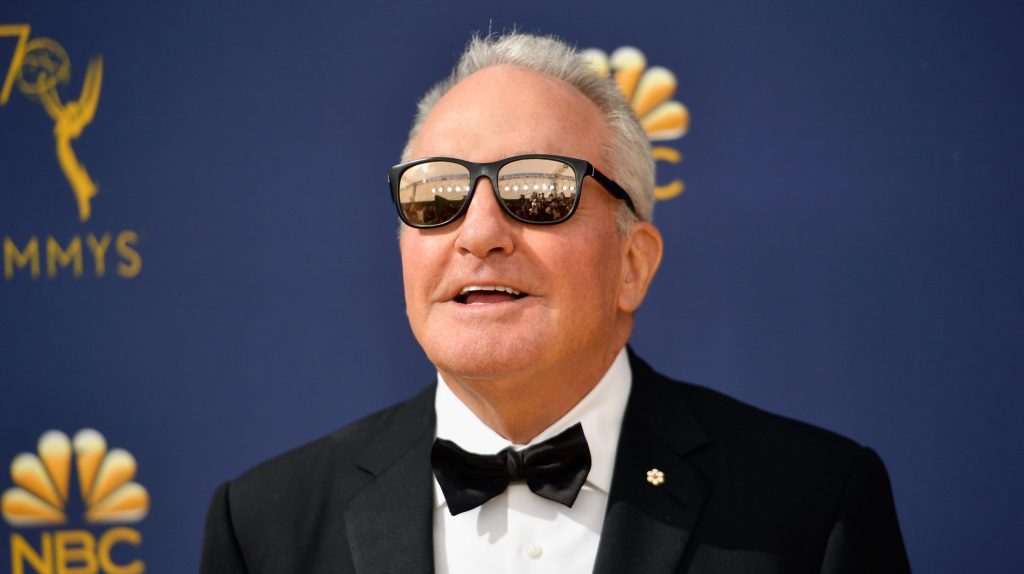Lorne Michaels Young, a name synonymous with comedy and innovation in television, has left an indelible mark on the entertainment industry through his creation of Saturday Night Live (SNL). However, to truly appreciate his genius, it is essential to look back at his early days, which laid the foundation for his illustrious career.
Lorne Michaels Young Bio/wiki
| Category | Details |
|---|---|
| Full Name | Lorne David Lipowitz |
| Date of Birth | November 17, 1944 |
| Place of Birth | Toronto, Ontario, Canada |
| Nationality | Canadian-American |
| Education | Bachelor of Arts in English from the University of Toronto (1966) |
| Early Career | Began as a writer for CBC; worked on Rowan & Martin’s Laugh-In and The Beautiful Phyllis Diller Show |
| Major Work | Creator and executive producer of Saturday Night Live (SNL) |
| Other Productions | Late Night with Conan O’Brien, 30 Rock, The Kids in the Hall, Mean Girls, Whiskey Tango Foxtrot |
| Awards | 21 Primetime Emmy Awards, Mark Twain Prize for American Humor, Presidential Medal of Freedom |
| Marriages | Married Rosie Schuster (1967-1980), Susan Forristal (1981-1987), Alice Barry (1991-present) |
| Children | Sophie, Henry, and Edward |
| Current Role | Continues to serve as executive producer for SNL and other projects |
| Notable Achievements | Celebrated 50 years of SNL; received Kennedy Center Honor in 2021 |
Who is Lorne Michaels Young

Lorne Michaels Young: Early Life and Background
Lorne Michaels was born Lorne David Lipowitz on November 17, 1944, in Toronto, Ontario, Canada. He was the son of Florence and Abraham Lipowitz, a family that would later influence his comedic sensibilities. Growing up in a Jewish household, Michaels was surrounded by a rich cultural background that would inform much of his work in comedy.
Michaels attended Forest Hill Collegiate Institute and later graduated from the University of Toronto in 1966 with a Bachelor of Arts in English. A burgeoning interest in writing and performance marked his formative years. As a teenager, he began writing fiction, which hinted at his future endeavors in storytelling and comedy.
The Move to Comedy
After completing his education, Michaels partnered with fellow Canadian comedian Hart Pomerantz. Together, they created The Hart and Lorne Terrific Hour, a series of comedy specials for the Canadian Broadcasting Corporation (CBC) in the early 1970s. This experience not only honed Michael’s skills as a writer but also provided him with invaluable insights into the world of television production.
In 1968, seeking greater opportunities, Michaels moved to Los Angeles. His early career saw him working as a writer for various shows, including Rowan & Martin’s Laugh-In and The Beautiful Phyllis Diller Show. These experiences exposed him to the fast-paced world of American television and helped him establish connections that would prove crucial later on.
Breaking into Television
Michaels’ big break came when he returned to Canada to produce The Hart and Lorne Terrific Hour. This series showcased his ability to blend humour with social commentary, a hallmark of his later work on SNL. However, it was his collaboration with Lily Tomlin that truly set the stage for his future success. Michaels produced several specials for Tomlin, earning critical acclaim and an Emmy Award for one of them. This recognition gave him the credibility he needed to pitch his own ideas to major networks.
In the early 1970s, Dick Ebersol, head of late-night programming at NBC, took notice of Michaels’ work. Ebersol was looking for fresh ideas to attract a young audience to late-night television. He was intrigued by Michael’s proposal for a new kind of comedy show—one that would be frank and intelligent while appealing to urban adults. This proposal would eventually evolve into what we know today as Saturday Night Live.
The Birth of Saturday Night Live
On October 11, 1975, Saturday Night Live premiered on NBC. The show was groundbreaking in its format—live sketch comedy that tackled contemporary issues with humour and irreverence. Michaels’ insistence on live performances allowed for spontaneity and unpredictability that captivated audiences. He gathered a talented cast of writers and performers who would go on to become legends in their own right.
From its inception, SNL featured an array of comedic talents who pushed boundaries and challenged societal norms. The show’s unique blend of satire and sketch comedy quickly garnered attention and acclaim. Michaels served not only as the creator but also as the executive producer and head writer during its formative years.
Lorne Michaels Young Challenges and Triumphs
Despite initial scepticism from network executives about the show’s format, Michaels remained steadfast in his vision. He demanded creative control over the project—no pilot episode and a commitment for multiple shows—which ultimately led to SNL’s success. The show’s debut episode featured comedian George Carlin as host and established a template for future episodes that included musical guests and topical sketches.
Throughout its history, SNL has faced numerous challenges, including changes in cast members and shifts in audience preferences. However, under Michael’s leadership, it has consistently adapted while maintaining its core identity as a platform for innovative comedy.
Lorne Michaels Young Movies and TV Shows
| Year | Title | Role | Type |
|---|---|---|---|
| 1979 | Mr. Mike’s Mondo Video | Executive Producer | Film |
| 1980 | Gilda Live | Producer, Writer | Film |
| 1984 | Nothing Lasts Forever | Producer | Film |
| 1986 | ¡Three Amigos! | Producer, Writer | Film |
| 1992 | Wayne’s World | Producer | Film |
| 1993 | Coneheads | Producer | Film |
| 1993 | Wayne’s World 2 | Producer | Film |
| 1994 | Lassie | Producer | Film |
| 1995 | Tommy Boy | Producer | Film |
| 1995 | Stuart Saves His Family | Producer | Film |
| 1996 | Black Sheep | Producer | Film |
| 1996 | Kids in the Hall: Brain Candy | Producer | Film |
| 1998 | A Night at the Roxbury | Producer | Film |
| 1999 | Superstar | Producer | Film |
| 1999 | Man on the Moon | Cameo as Himself | Film |
| 2000 | The Ladies Man | Producer | Film |
| 2001 | Enigma | Producer | Film |
| 2004 | Mean Girls | Producer | Film |
| 2007 | Hot Rod | Producer | Film |
| 2008 | Baby Mama | Producer | Film |
| 2010 | MacGruber | Producer | Film |
| 2012 | The Guilt Trip | Producer | Film |
| 2015 | Staten Island Summer | Producer | Film |
| 2016 | Whiskey Tango Foxtrot | Producer | Film |
| 2016 | Brother Nature | Producer | Film |
| 2016 | Masterminds | Producer | Film |
| 2017 | Sandy Wexler | Cameo as Himself | Film |
| 2024 | Mean Girls (2024) | Producer | Film |
Television
| Year | Title | Role |
|---|---|---|
| 1968 | Barris & Co | Writer |
| 1968 | The Beautiful Phyllis Diller Show | Writer |
| 1969 | Rowan & Martin’s Laugh-In | Writer |
| 1969 | The Jim Nabors Hour | Writer |
| 1970–1971 | The Hart and Lorne Terrific Hour | Co-star, Writer, Producer |
| 1973 | The Burns and Schreiber Comedy Hour | Writer |
| 1973 | Lily | Producer, Writer |
| 1974 | Flip Wilson… Of Course | Producer, Writer |
| 1975–1980; 1985–present |
Saturday Night
| 1978 | All You Need Is Cash: The Rutles Executive Producer |
| 1982 | The Concert in Central Park Executive producer |
| 1984 | The New Show Producer |
| 1988–1990 | Sunday Night Executive producer |
| 1988 | 40th Primetime Emmy Awards Executive producer |
| 1988–1995;2022
The Kids in the Hall Executive producer
Lorne Michaels Young Legacy and Impact
Lorne Michaels’ influence extends far beyond SNL; he has produced numerous other successful shows such as Late Night with Conan O’Brien, 30 Rock, and Portlandia. His ability to spot talent has launched the careers of countless comedians who have gone on to achieve fame in their own right.
Michael has received numerous accolades throughout his career, including multiple Emmy Awards—holding the record for the most nominations in Emmy history—and prestigious honours like the Mark Twain Prize for American Humour and the Presidential Medal of Freedom.
As he approaches his 80th birthday, Michaels continues to be actively involved with SNL, demonstrating an unwavering commitment to comedy that resonates with audiences across generations.
Conclusion
Determination and creativity characterised Lorne Michael’s early days, laying the groundwork for one of television’s most enduring legacies. From his humble beginnings in Toronto to becoming a titan of comedy in America, Michaels’ journey is a testament to the power of vision and perseverance in shaping popular culture.
As we reflect on his contributions to entertainment through shows like SNL, we are reminded that outstanding comedy often stems from genuine experiences and insights into society—a lesson that Michaels embodies throughout his remarkable career.


